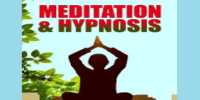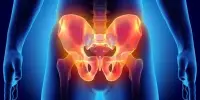The connection between awareness of time, risk of developmental coordination dysfunction (DCD). Neuroscientists at McMaster University have established a correlation between children at risk for developmental coordination disorder (DCD), a common disability that can induce clumsiness, and time perception problems such as processing changes in rhythmic beats.
Developmental coordination disorder (DCD) is a common illness that may induce clumsiness and time perception problems, such as interpreting shifts in rhythmic beats. An accurate understanding of time is essential to fundamental abilities such as walking and voice and music processing.
Developmental Coordination Disorder (DCD) is a serious impairment in acquiring and executing age-appropriate motor skills that interfere significantly with academic achievement and activities of daily living in the absence of underlying medical conditions such as cerebral palsy or mental retardation.
“Many developmental disorders, including dyslexia or reading difficulties, autism, and attention deficits have been linked to deficits in auditory time perception,” says Laurel Trainor, senior author of the study and managing director of the McMaster Center for Music and Mind. Kids with DCD are a heterogeneous group having problems with their gross and/or fine motor skills. Coordination disorders are intertwined with the learning environment and, in many cases, lead to academic failure.
Previous research has shown that the brain networks involved in time perception also interact with the motor control networks needed for tasks such as catching a ball or tapping musical beats. Until now, researchers have not studied whether children with DCD appear to have auditory timing deficits, despite being at risk for dyslexia and attention deficits. The research, published online in the journal Child Growth, offers new evidence of this relation in infants.
Developmental coordination disorder is a widespread but little-studied disease that affects approximately 5% to 15% of all children who can experience a wide variety of fine and/or gross motor skills difficulties. It may have major and lasting impacts on day-to-day activities such as dressing, writing, and sports or play, and also interfere with schooling, academic success, and socialization. For this study, researchers enrolled more than 60 children aged 6 and 7 years who received motor skills testing and were assessed either as being at risk for DCD or as being normally developing.
During the first study, each child was asked in a series of trials to decide which of the two sounds was shorter in duration or had an off-beat rhythm. As a result, researchers calculated the threshold or smallest time delay at which each child could barely make the right decision.
“We saw that indeed, children at risk for DCD were much less sensitive to time changes compared to typically developing children,” says Andrew Chang, senior researcher and graduate student at McMaster’s Department of Psychology, Neuroscience & Behaviour.
In the second trial, researchers used EEG to track children’s brain waves when they listened to a series of sounds that had been modified to incorporate intermittent pacing changes. Children at risk for DCD demonstrated slower brain function in response to unexplained pacing deviants. There are no treatments to cure DCD, but physiotherapy and occupational therapy can help children develop muscle strength, balance, and coordination.
“We know anecdotally that therapists sometimes incorporate regular rhythms into the physical therapy they give to children with DCD, and they have the impression this helps — for example, that children can walk better when they walk to a rhythm,” Chang says.
“Although our current study did not directly investigate any intervention effects, the results suggest that music with salient and regular beats could be used for physiotherapy to help treat children,” he says. Learning how to assist a child with a developmental coordination disorder (DCD) is a journey. On the way, you’ll hear about signs, recovery choices, and what schools and clinicians can do to improve.
It points to motor therapy of auditory Metronomy or musical beats that aid adult patients who have Parkinson’s disease or recover from a stroke. Further studies could help decide whether similar treatments are effective for children with DCD, he says.














